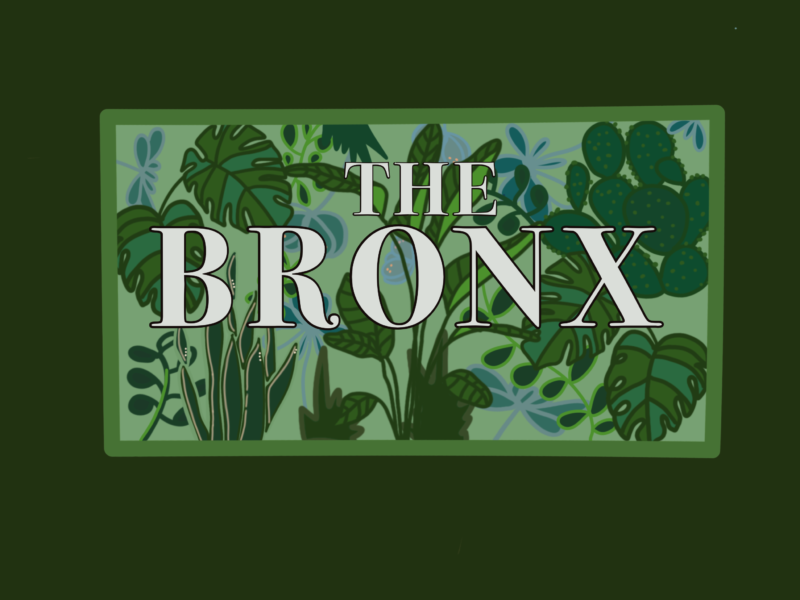It’s Time for Latinx to Stand With The Black Community
I am half Dominican and Puerto Rican, two heavily racially mixed places in the Caribbean. I grew up listening to my family telling me that I had to “mejorar la raza” (improve the race) since I have fair skin. For this reason, I was told not to date Black men so that my children will not come out with darker skin. I was always uncomfortable with this notion since I felt a certain pressure to preserve the whiteness that my family has already achieved. I chose to ignore these remarks. At the time, I did not know that my family’s remarks and my silence fed into white supremacy.
The Black Lives Matter movement in this current moment is more than getting upset from seeing a Black man getting killed on camera by police. This movement forces us to acknowledge how society has systematically dehumanized Black lives socially, politically, and economically. To make Black lives truly matter, we must restructure our society and even our own actions. This restructuring can manifest in many ways, but it must start within oneself.
The Black Lives Matter movement has shaken my thinking and consciousness of Blackness. I have gained a hyper awareness of the fact that the Afro-Latinx identity is often excluded and discriminated against in the Latinx community. Although Latinx people are an oppressed minority in the U.S., there are racial prejudices against Black Latinx people.
I know now that my neutrality only perpetuates racism. I cannot stay quiet or complacent anymore when it comes to racist remarks and tendencies that occur in the Latinx community.
Many of the individuals who are in the front lines of this reform are young people, specifically Millennials and Gen Zers. This makes me hopeful that my generation will bring the second wave of a Civil Rights Movement. A movement where we are calling out police departments, government officials, corporate companies, and others to actively commit to anti-racist actions. Anti-racist actions where not only equity of opportunity is achieved, but my Black peers are heard and seen on a human level. I have seen this type of work at alma matter Hamilton College, an institution built on indigenous land. Although my time at Hamilton was cut short, I will always remember how my peers genuinely wanted to improve the BIPOC experience on campus.
Many of my peers are talented activists and organizers that constantly hold my school accountable for its treatment of BIPOC students and its lack of action taken to address outwardly racist interactions that students and faculty have faced. The work my peers have done to improve the lives of marginalized groups is part of a larger framework that my generation works towards in combating racial injustice. For example, the cultural organizations at Hamilton have invited speakers that foster productive conversations about race and white supremacy. These organizations have publicly denounced any racism that happens on campus. The Black Latinx Student Union created a list of demands for Hamilton’s administration on how to improve diversity and inclusion initiatives. My peers make BIPOC presence known on campus by infiltrating spaces that usually exclude minority students and even staff. I am eternally grateful that I was able to witness how people my age can use their voice to organize and challenge systems that are engrained in Hamilton.
I hope we continue to have tough conversations about the implications of race followed by action. I hope we continue to hold one another accountable whenever and wherever we see injustice.
You might ask how can we take effective action? In what ways can we push for a more equitable world for our Black peers? What responsibilities do we have towards this movement or to racial injustice in general?
Here are tangible action steps you can take:
- Peacefully Protest: Protesting is a crucial part of our democracy because it strengthens public opinion and discourse. More specifically, BLM protestors are on the streets because they are concerned about the treatment of Black people in this country. Physically organizing and demanding justice for victims or defunding the police creates a collective power that the government cannot ignore. Just because protests are not being televised as much anymore, it does not mean that they are not happening! If you do decide to protest, please stay safe because we are still living through a pandemic.
- Sign Petitions: If you are not comfortable protesting in the streets, signing petitions is an easy way to support the movement from home. You might think that a list of signatures will not initiate any impactful change, but petitions highlight how a group of people can come together for a common cause. Your signature is another way to make your voice heard within this movement. There are many petitions regarding changing/revising legislation, justice for victims of police brutality, and many more that center around BLM.
- Donate to and Support Black Businesses: Money talks! Donations can help support organizations that focus on creating a more just and equitable world for Black people. These organizations work to dismantle systems of oppression and to shed light on the disparities that continue to exist. You can also use your money to support Black businesses to help strengthen local economy and celebrate their service! Opening your purse to these businesses is an acknowledgement that racial economic inequality exists and that your dollars should be used for a greater good. There are many Black owned businesses in The Bronx, in New York City, and across the country!
- Support Racial Justice Initiatives: This can be at school or at work or at your community organization. Volunteer to help drive these initiatives into fruition or even research how the various spaces you interact in can be more diverse and inclusive. Also, do not be complicit with these types of initiatives! Always challenge or question whether these efforts will address racial inequality.
There are many other ways you can get involved that are not listed. However, we should all acknowledge these actions are a call for systemic change or a means to uplift our communities.
I truly believe that Black Lives Matter. Black women, Black trans people, Black disabled people, and Black non-binary people. I will do everything in my power to protect, support, and listen to my Black peers. I will also continue to do the anti-racist work within myself and in my community.



